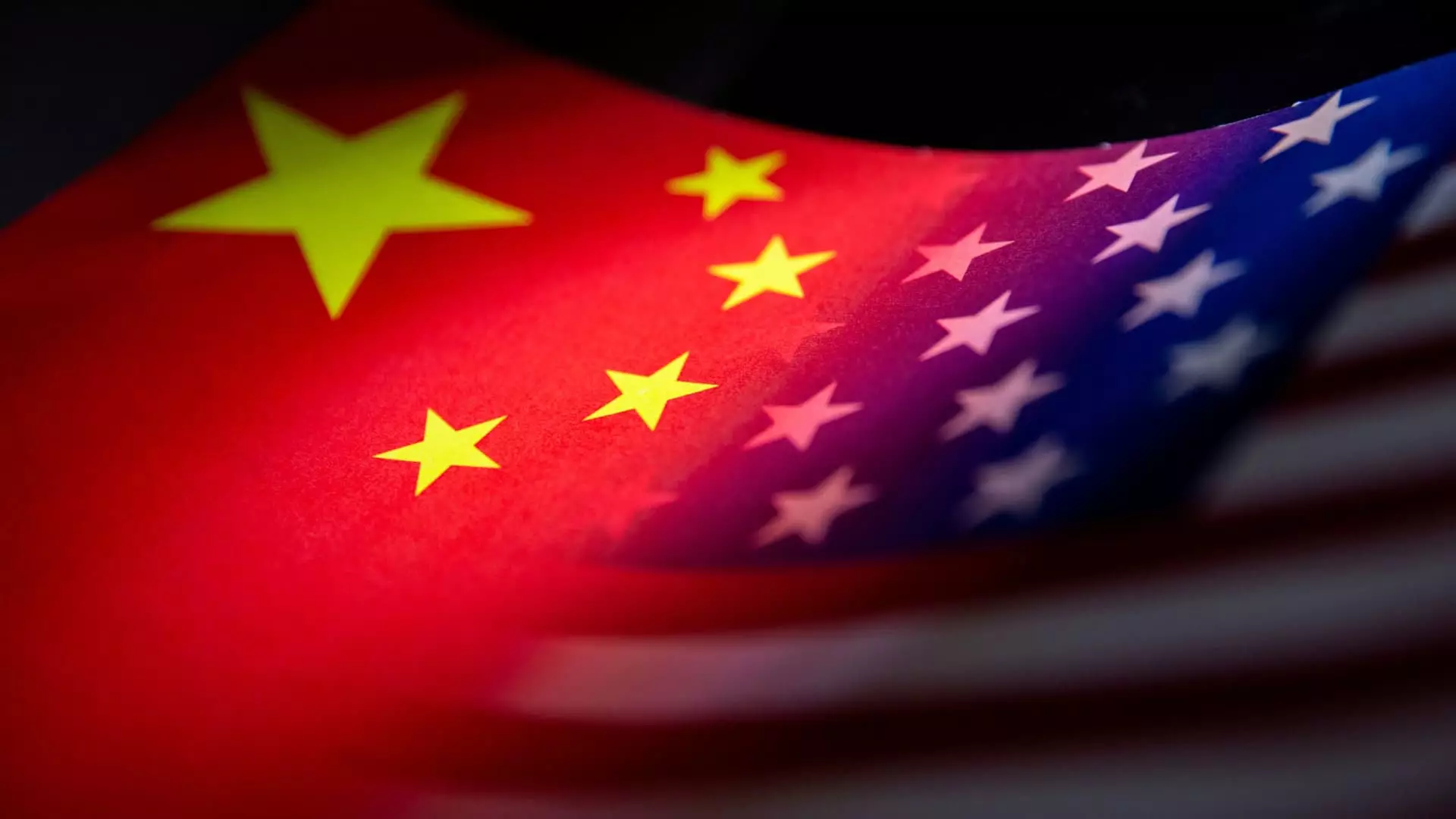Chinese President Xi Jinping recently extended an olive branch to global executives, emphasizing the importance of multinational companies in “upholding global order.” This proposition, while appealing on the surface, raises critical questions about the true stability of the business environment in China. With ongoing trade tensions with the U.S., touted by Xi as opportunities for collaboration, one must ponder if the confidence he seeks to instill is built on solid ground or merely a façade.
The allure of investing in China, as Xi claims, is akin to investing in the “tomorrow” of the global economy. Yet, such optimistic rhetoric must grapple with an unsettling reality: the unpredictability of regulatory actions and the potential for sudden shifts in policy under the guise of national interest. Xi’s emphasis on China as a “safe and stable” environment seems incongruent with the aggressive stance exhibited by the U.S administration, which has tightened tariffs and placed restrictions on Chinese technology firms. The very essence of stability is challenged when the foundation of international commerce rests on a volatile political landscape.
Global Business Responsibility: A Double-Edged Sword
During this pivotal roundtable, Xi highlighted the corporate world’s responsibility to collaborate with China for mutual growth. However, this partnership rhetoric casts a long shadow over the ethical implications involved. Is it appropriate for foreign corporations to align with a government often criticized for human rights transgressions and aggressive state surveillance? The intertwining of corporate profits with the political ambitions of a regime that sits uncomfortably with democratic values raises moral questions about complicity in undemocratic practices.
The burden of these ethical dilemmas is thrust upon corporations that must navigate complex waters, effectively balancing hesitation against the opportunity for considerable profits. One cannot help but wonder if such partnerships legitimize the actions of a government that employs economic power as a means of geopolitical coercion. Consequently, the ideal of global cooperation is diluted by the realities of a commercially motivated engagement within an authoritarian framework.
A Hostile Business Environment: Investment with Strings Attached
Despite Xi’s insistence on fair opportunities for foreign investments, the reality of China’s economic landscape tells a different story. The promise of significant economic returns is often laced with strings attached. The Chinese government’s tight control over market access, particularly in sensitive sectors, often puts foreign companies at a disadvantage. The recent moves to restrict certain Chinese firms reflect a broader concern among nations regarding dependencies that can be weaponized at any moment.
Xi’s message is not merely a call to investment; it is an appeasement strategy meant to maintain a façade of economic openness amid increasing isolation. The fact that the West is turning cautious should serve as an alarm bell that no country can afford to ignore. The confidence that foreign companies tend to have in China’s market can easily be shattered by unilateral regulations that signal a lack of genuine reciprocity.
Negotiation Over Decoupling: A Fragile Hope
Xi’s assertion that U.S.-China trade conflicts should be resolved through negotiation rather than decoupling rings hollow against the backdrop of escalating nationalist sentiments in both countries. While the notion of restoring stable global supply chains is commendable, it seems naive to ignore the entrenched positions that both nations have adopted in recent years. The specter of protectionism looms large, making it difficult to envision a future where cooperation triumphs over confrontation.
The encouraging gesture by U.S. Senator Steve Daines, who met with Chinese officials, might signal a thawing of relations. However, it is essential to recognize that one meeting does not rewrite the script for U.S.-China relations. The complexities remain daunting, and aspirations for business-led diplomacy may prove futile if underlined by diverging national interests. In this environment of uncertainty, it is crucial to question whether executives are courting a mirage or a viable pathway to economic advancement.
The Future of Investment in China: A Divided Opinion
As global executives weigh their options, there is a palpable tension between the desire for lucrative opportunities in China and the ethical implications that come with them. For every corporate leader who considers Xi’s invitation a gateway to future prosperity, others view it as a harbinger of moral compromise and risk. The delicate balance between capitalistic ambition and ethical responsibility creates an ongoing debate about the sustainability of such investments.
China’s ambitious growth narrative is enticing, but can it provide the necessary assurances for a future untainted by controversy? With history as a guide, one must tread lightly and scrutinize not just the promises but the implications of engaging in an economic partnership with a government whose track record evokes significant debate. Despite the allure of “tomorrow,” it is prudent to question whose tomorrow is being prioritized and at what cost.

Leave a Reply